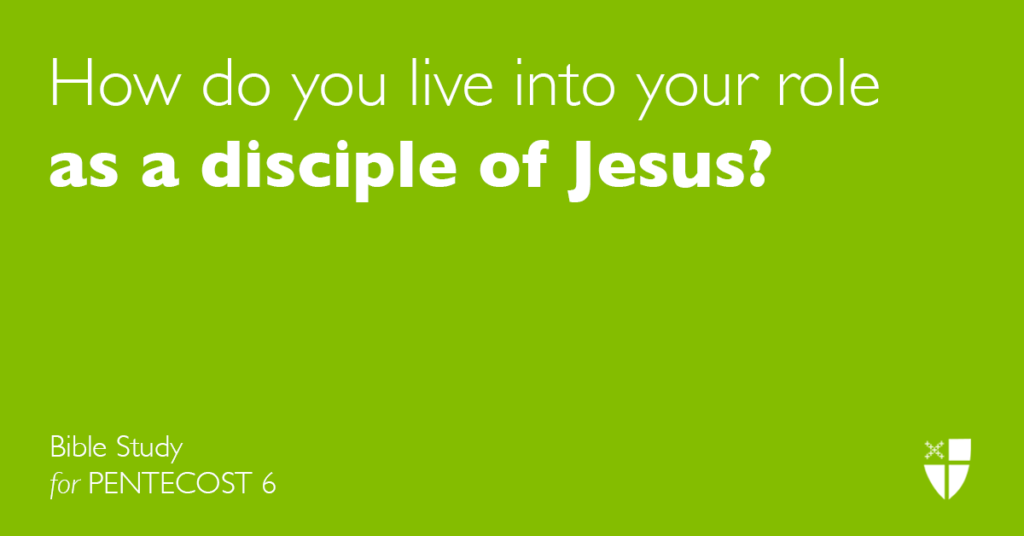Bible Study: Proper 11 (C) – 2019
July 21, 2019
Amos 8:1-12

A basket of summer fruit: the prophet Amos lived among a group of shepherds and was “a dresser of sycamore trees” (Amos 7:14), so he knew and appreciated a basket of fruit more than anyone. He also knew that ripe summer fruit rots quickly. That’s the warning he was giving to the privileged people of Israel. In a talk at the Faith and Politics Institute in Washington, D.C., Thomas Cahill described prophets as “inconvenient party-poopers.” He said, “Amos is the first in a long line of Hebrew prophets who tell the people the truth, however unwelcome, about how they actually stand with God.” While the privileged class was enjoying a time of wealth, stability and prosperity, Amos warned them that it wouldn’t last – at least if they continued to uphold religious and moral corruption, take advantage of and oppress the less privileged, and only look out for themselves. Amos knew that just as the Nile rises and subsides, so does wealth and privilege, which leads to a “toss[ing] about” of God’s judgment. God will punish injustice with wrath and bitterness.
- In what ways does your privilege take advantage of others? What can you do to lift others up using your privilege and prosperity, however you define them?
- If Amos were examining your life and lifestyle, what kind of truth do you think he would tell about you?
Psalm 52
David wrote this Psalm in reaction to a personal betrayal. Fearing for his life in Saul’s court after yet another attempted murder (see the book of 1 Samuel), David took refuge in the home of Ahimelech, the high priest. The chief herdsman, Doeg, informed Saul that David had taken refuge with Ahimelech, and accused the priest of confederacy with a traitor. Saul responded by ordering Doeg himself to kill all the priests.
David was clearly angry and wrote his reactions in this Psalm. But besides anger and despair, in the midst of all of his sorrows, David also finds joy. He triumphs and rejoices, full of life like a green olive tree, and gives thanks. He writes his anger into his song, blasting those who betray and lie. But David also uses his individual circumstance as an illustration of choices we make every day: One can take refuge in God, or in riches of power and wealth. For individuals or nations, the choice to live with God will make us rejoice!
- What is your reaction when someone wrongs you?
- How can you turn to rejoice in God’s love amidst human drama and betrayal?
Colossians 1:15-28
In his letter to the Colossians, Paul addresses rumors of heresy by reminding these new Christians of the basics of their faith. Christ is central, and Paul knows that if the Colossians understand who Christ was and what his mission and purpose were, then they will have a firm theological footing on which to deal with real-life temptations and conflict. Christ will bring unity—between people, and between humanity and Christ. Verses 1:15-20 are known as the Christ Hymn, which was probably used liturgically, drawing on Jewish wisdom metaphors to praise Christ’s superiority and unity with all Creation. It often seems like our own arguments and temptations would feel less earth-shattering if we remembered our footing in Christ. I wonder how my life would change if every time I felt distracted by human drama, gossip, selfishness or self-consciousness, I repeated something like the Christ Hymn. Paul tries to put things into the perspective of unity with Christ, and it’s a message we can still learn from.
- What beliefs or mantras keep you centered and rooted in Christ?
Luke 10:38-42
This Gospel story brings up a question of identity and roles. Martha accuses Mary not only of not helping to serve dinner—which is the duty of a woman—but for sitting at Jesus’ feet—which is the prerogative of a male disciple. Women were not permitted to receive religious instruction under the rabbinical law, but some nevertheless persisted. By sitting at Jesus’ feet, listening to his religious teachings, Mary demonstrated bravery in transgressing the deep-seated prohibition of women in the role of disciple. And Jesus was complicit in the (righteous) transgression by allowing and then praising Mary for it. He doesn’t necessarily denounce the old ways, but gently affirms the new models.
Today we celebrate such stories in which Jesus allowed and invited women into his ministry and mission. But as Professor Walter Wink points out, how would the stories be received if Jesus had actively crossed into participating in a “woman’s role?” If he had helped Martha in the kitchen to prepare and serve the meal? Perhaps the examples Jesus gives of crossing societal boundaries are political statements not in that they promote crossing gender roles, but in that they prioritize the true meaning of his ministry—to listen, learn, and be changed by the Word of God.
- How do you live into your role as a disciple of Jesus?
- Examine what societal norms govern your life, especially around gender. What comes up?
¡No olvide suscribirse al podcast Sermons That Work para escuchar este sermón y más en su aplicación de podcasting favorita! Las grabaciones se publican el jueves antes de cada fecha litúrgica.


